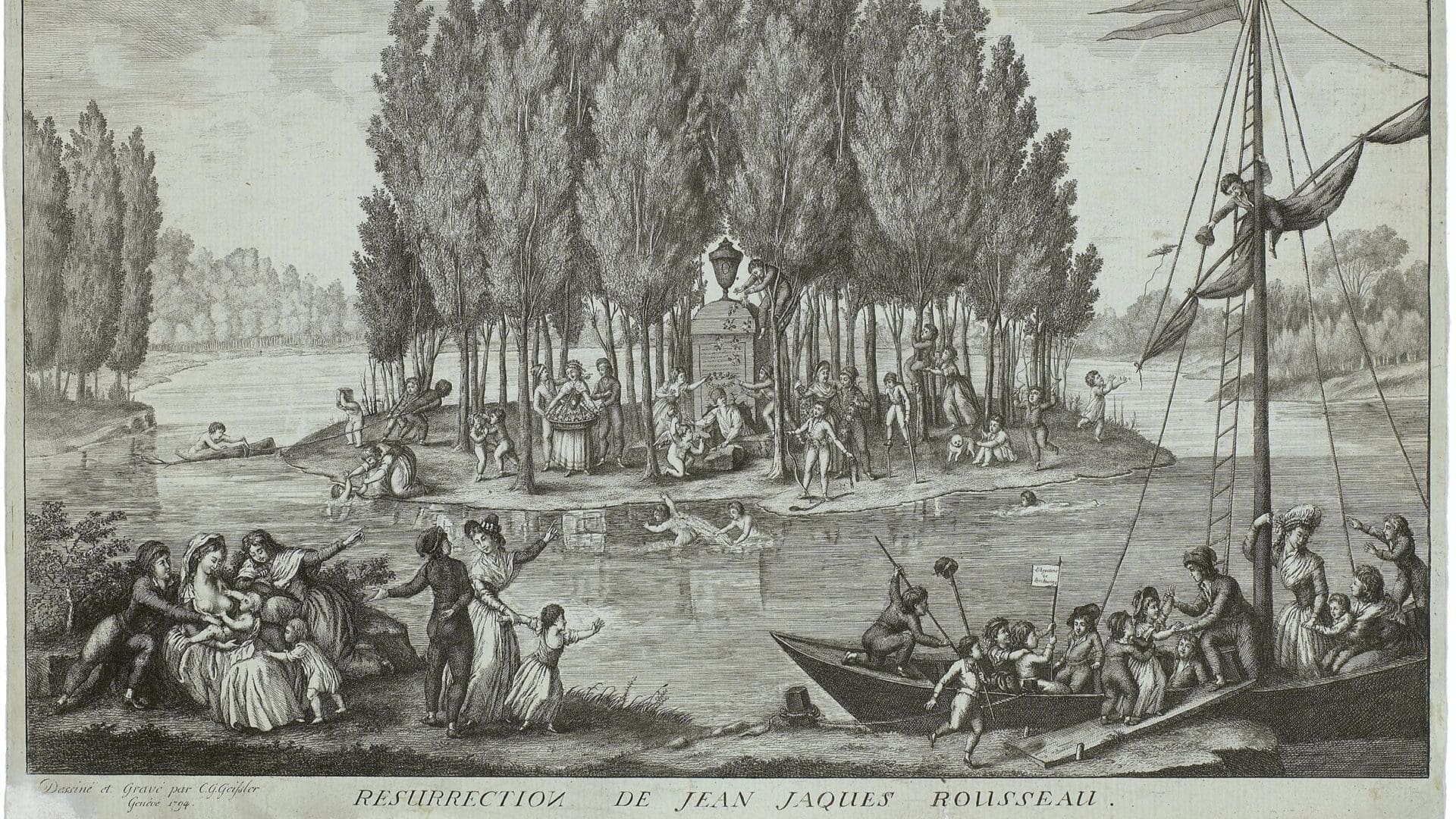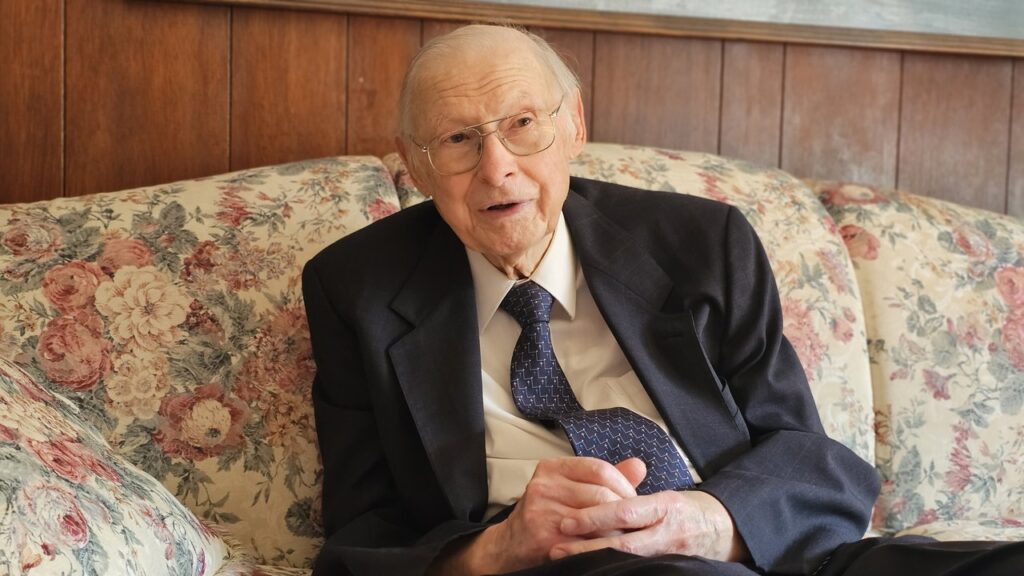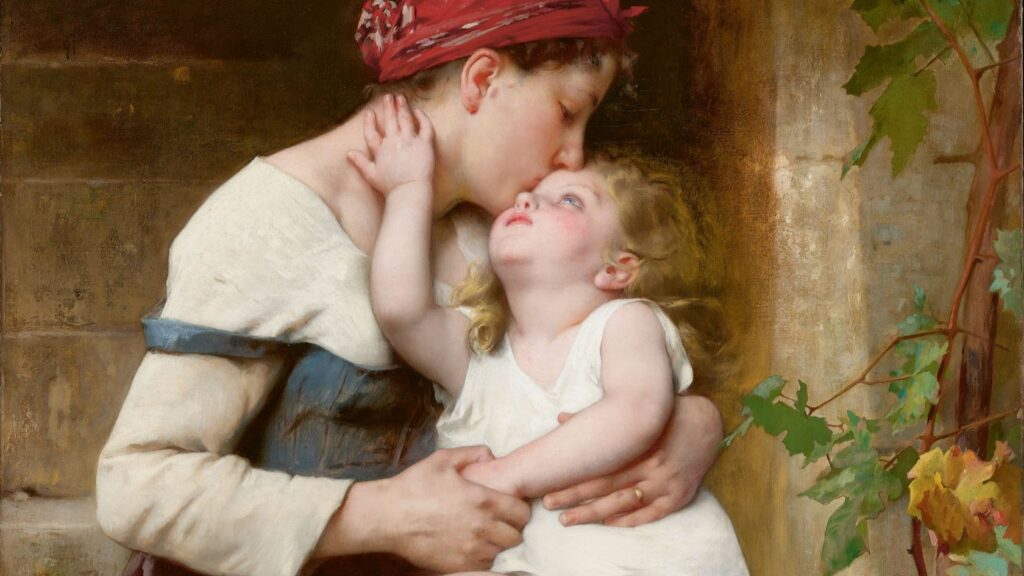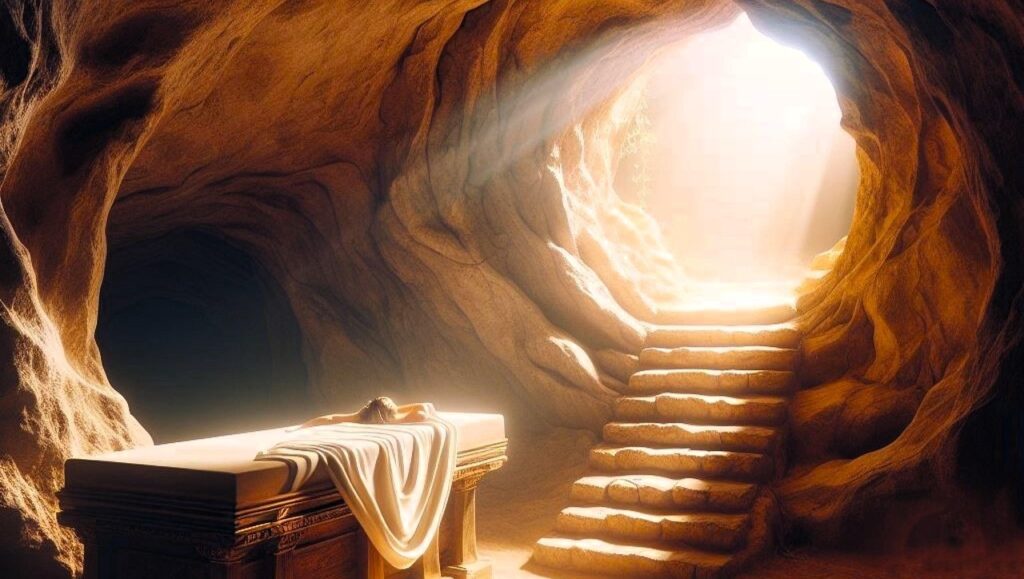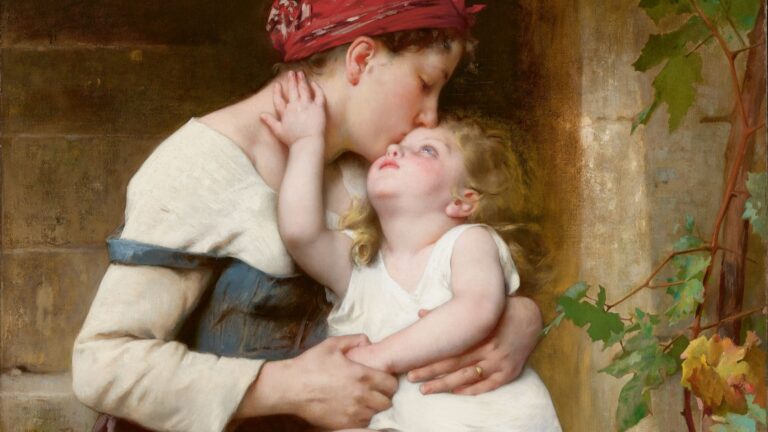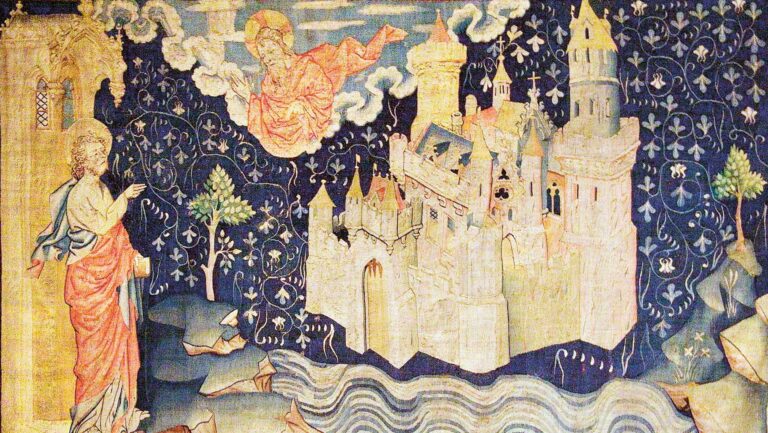The concept of political theology first entered modern political thought in the classic work of Carl Schmitt, published in 1922. [1]The other important source is Eric Voegelin, who wrote about ‘political religions’ mainly in connection with the ideology of twentieth-century dictatorships.[2]
Naturally, ‘theology’ is not synonymous with ‘religion’, but we can find a close correspondence between them. Most religions have some kind of theology—that is, a systematic reflection on faith—and theology, like religion, is inconceivable without the reference of an element of transcendence, ‘above rationality.’
Tamás Nyirkos holds that ‘our age is not an age of disbelief’, but is rather characterized by different, contradictory and often confusing beliefs. ‘Some ideologies of modernity do not even show traces of rationality, that is, they are much more superstitious and
demand much more blind faith than their allegedly less enlightened predecessors.’[3]
According to the author, ‘Political theologies’ were created precisely against other traditional systems of belief, practice and institutions that were forced out of politics, to replace them.[4]
Nyirkos means by this concept that the most important political-ideological formations of modernity can be derived from Christian theology, as its secularized and simplified imitations. In place of Theos, that is, the transcendent concept of God in Christianity, there is an absolutized, abstract entity that is also sacralised—in the eye of the believers. However, from the point of view of the traditional religion, it covers the concept of idolatry: such as the ‘will of the people’ of democracy, the ‘leader’ of dictatorships, the ‘economy’ of economists, or the ‘nature’ of ecologists.’[5]
The word ‘democracy’ first appeared in ancient Greek political thought, in the city-state of Athens, as a term denoting the polis form of government, during the period of classical antiquity.[6] Democracy is the most widespread forms of state in the world of today. The term itself has become a quasi-equivalent of ‘good governance’ and ‘political freedom.’ Since the period of the Enlightenment, democracy has been associated with the ‘rule of the people,’ the free selection and election of the state’s government. The philosophy of modern democracy derives itself not directly from the Greek antiquity but from the rationalist Enlightenment. However, its theory and its politics—far from being based on a totally rational basis—seems to have religious and theological implications in abundance.
Alexis de Tocqueville, one of the earliest examiners of modern democracy saw the ‘will of God’ or ‘God’s providence’ operating in the modern expansion of democracy—which is impossible to resist.
‘Whithersoever we turn our eyes we shall witness the same continual revolution throughout the whole of Christendom. The various occurrences of national existence have everywhere turned to the advantage of democracy; all men have aided it by their exertions: those who have intentionally labored in its cause, and those who have served it unwittingly; those who have fought for it and those who have declared themselves its opponents, have all been driven along in the same track, have all labored to one end, some ignorantly and some unwillingly; all have been blind instruments in the hands of God..’[7]
Although the modern conception of democracy refers to rationality, above all it demands faith on the one hand in the goodness of the actual majority of the voters, and on the other, it requires the not-at-all-obvious belief that the will of the elected representatives is the same as the will of those who elect them.
In the political thought of the last two centuries—as well as in practical politics, in the media, in education, or in other forums that determine public opinion—democracy has been portrayed often as the best, indeed the only remedy against tyranny. Therefore, we almost automatically associate ‘anti-democratic’ ideas with anti-freedom, tyranny, and even an often unspecified ‘totalitarianism.’ It has been forgotten, though, that
democracy can also be totalitarian and tyrannical.
According to the most insightful analysts of democracy such as Tocqueville and John Adams, to believe in the ultimate ‘goodness’ of democracy one needs a specific faith, a quasi-theological belief in the ultimate ‘good will’ of the people and with that, even an implicit negation of the Christian tenet of original sin.
Rousseau, one of the earliest theorists of modern democracy, argued in The Social Contract that people—as a whole—have a general will, which is the same as the ‘will of the people.’ This is also the will of the majority. The theory is allegedly based on rationality; however, it is quite mystical and very much opposed to empiricism. Practically, it means the creation of a kind of ‘dogma’ of popular sovereignty, which represents a transition of a theological concept into the realm of secular concepts—also highlighted by Carl Schmitt.[8] As Rousseau writes:
‘The citizen gives his consent to all the laws, including ones that are passed against his opposition, and even laws that punish him when he dares to break any law. The constant will of all the members of the state is the general will; by virtue of it they are citizens and free.’[9]
‘Pure Democracy’
Defenders of ‘pure democracy’ or the ‘direct democracy’ theory often refer to the Rousseauian hypothesis. A question, however, will immediately arise.
If we are not examining the abstract and sterile ‘laboratory’, but real conditions, real human societies and real states, can we apply such strict mathematical regularity? Critiques could say ‘pure’ majority voting would not be possible, because not only would it be unfeasible in terms of the technical conditions of voting, but it is also clear that a real state would simply become ungovernable in a short time and collapse due to the slow, cumbersome and completely inefficient form of such a decision-making mechanism. Or it would be at an irreparable disadvantage compared to those states where the decision-making process is faster and simpler. It is therefore obvious that self-government in the ‘pure’ form is not possible, and therefore some kind of distinguished government is needed, which is separate from the vast mass of the governed.
The other, and even more serious problem with this is that the maximum application of the quantitative principle—pure majority voting—would lead to being decided by numbers,
completely excluding the quality criteria of intelligence, reason, knowledge and experience,
those very important factors that do not depend on quantity in any sense. Such a democracy would have to make the rationally and empirically unverifiable claim that ‘the people’—acting as a majority—have some kind of mystical wisdom, a God-like nature, (as Rousseau also wrote) and that the majority of the people are always, or at least almost always, right. If these were realistic facts, the question ‘What is truth?’ would rightly be answered by the larger number. But these, critics argue, are not realistic facts. According to them, if we applied ‘pure democracy’ we would create an arbitrariness without counterweights, the ‘pure arbitrariness’ of the majority. For example, if the majority decides everything, then there is no guarantee that the laws on the protection of minorities could not be changed based on the majority’s decision.
Representative Democracy
These counterarguments to ‘pure democracy’ are taken into account when defenders of the democratic theory are forced to make concessions or restrictions compared to ‘pure’ or absolute democracy. In a representative democracy, the governed temporarily transfer their power to the governors. Representative democracy means a kind of ‘rationalization’ and the weakening of the faith in pure and abstract ‘majority’ decisions. However, this type of democracy raises questions regarding its democratic nature. The two groups—the voters and the voted—are still equal in theory, although specific political decisions are made exclusively by a narrow group of governors, and the governed have no say in those decisions. A certain permeability of the hierarchy formed in this way is ensured by the fact that in theory ‘everyone’ can become a governor, and the governors need the reinforcement of the governed. In practice, this kind of democracy differs from ‘non-democracy’ in only two ways: the governed can replace the governors, and they can also become governors. One of the basic criteria of representative democracy, according to which the governors and the governed are always interchangeable, may also not be fulfilled. Considering the extreme complexity of managing a real state, it would undoubtedly be utopian to conclude that every adult citizen of the state is equally suitable for the role of president, just as it would be unfortunate to require the diplomat to develop the same skills as a military or an economic leader.[10]
Abilities, which seemingly ‘predestine’ individuals to perform different tasks, are extremely unevenly distributed in the population. Although we could also say that the development of certain abilities is not determined by education, or by upbringing, or by the social situation; not by genetically encoded characteristics, not by the environment, not by culture, and not by geographical space, but by an extremely complex interplay of these. Of course, many individuals in all kinds of societies have some kind of gift, and it would be almost impossible to find someone who does not have some kind of ability. However, the different characteristics of people
do not necessarily predestine people for the same things and definitely not for ‘everything.’[11]
In theory, the group of ‘politicians’ is open to everyone, but in practice, we can see that this ‘everyone’ is only a very limited part of society. New elements enter the political elite only very slowly. Many factors need to be fulfilled at the same time for someone to enter the governing elite, but also to move in the direction of a political career. The theory of the cycle of political elites was formulated on the basis of the elite theories of Pareto, Michels and Mosca. According to the theory, in every political system, which is divided into the governed and the governors, an elite of an oligarchic character, the elite of the governors, is in fact in control.[12] Michells referred to this as the ‘iron law of oligarchy.’
Justifying Democracy
There are numerous arguments justifying democracy that are not rational. According to the theory of democracy, be it direct or representative, no other criteria can override the quantitative. In the end, numbers always decide, although in the representative system, or in a ‘liberal democracy’, all this is only true in a more limited way. Paradoxically, democracies in their existing form are not ‘strict’ democracies at all: they do not consistently apply their own rules, as they are forced to incorporate certain checks into their system, which the strict application of the quantitative principle would not allow. In order to execute effective governance, they are thus forced to give more or less space to the ‘quality differences’ between people, i.e. ultimately to a non-egalitarian principle. This principle appears, for example, in the system of supreme courts, or in the veto power of the president of the republic, and in some presidential systems it is present in a certain authority and ‘charisma’ of presidential power. Paradoxically, it seems that democracy can only sustain itself and protect itself from collapse, (tyranny and chaos) precisely by what is not democratic in it. It seems that it is always easier to justify democracy with a quasi-mystical hypothesis than with one that starts from the existing conditions of political realities. In democracy, we can clearly say that there is a huge gap between the ‘ideal’ and the ‘realistic’ and precisely because of this democracy definitely needs a ‘leap of faith.’
[1] Carl Schmitt, Political Theology. Four chapters on the concept of sovereignity. (Transl. Georg Shwab) University of Chicago Press, Chicago-London 2005. 36.
[2] From “Political Theology” to “Political Religion”: Eric Voegelin and Carl Schmitt. Thierry Gontier: The Review of Politics Vol. 75, No. 1, winter, 2013. 25-43.
[3] Nyirkos Tamás: Politikai teológiák. A demokráciától az ökológiáig. Typotex/Pázmány Péter Katolikus Egyetem, Budapest, 2018.
[4]Nyirkos, Politikai teológiák, 11.
[5] Nyirkos, Politikai teológiák. 9.
[6] The word comes from demos, ‘common people’ and kratos, ‘strength’. According to Erik von Kuehnelt-Leddihn, kratos, is force, (in opposition with arkhé – ‘to rule’) in the sense of meaning that includes a kind of ‘brutality’. ( Erik von Kuehnelt-Leddihn (Francis Stuart Campbell): The Menace of the Herd. The Bruce Publishing Co., Milwaukee, 1943, 2.)
[7] Alexis de Tocqueville, Democracy in America. 15-16. http://seas3.elte.hu/coursematerial/LojkoMiklos/Alexis-de-Tocqueville-Democracy-in-America.pdf (Last accessed: 2024. 02. 06.)
[8] As Nyirkos mentions, the idea of ‘Sovereign’ and ‘Sovereignty’ is a medieval word formation: as opposed to supremus, i.e. the top, it was intended to express ‘higher than the top’ or ‘highest’, ‘most important’. According to him, the term was first applied to God as ‘supreme father’. (Nyirkos, Politikai teológiák, 31.)
[9] Jean-Jacques Rousseau : The Social Contract. 56. In this regard, it is rather strange, that Rousseau also mentions: ‘A population of gods could have a democratic government. A government as perfect as that is not for men.’ (34) https://www.earlymoderntexts.com/assets/pdfs/rousseau1762.pdf (Last accessed: 2024. 02. 06.)
[10] However, argues Kuehnelt-Leddihn, the gigantic expansion of information does not make it easier, but actually makes it more difficult for people to really see their world:
‘If we compare now, for instance, one of the Swiss cantonal diets in the Middle Ages, or a New England town hall meeting, with the elective processes in a modern mammoth democracy, we will quickly discover that there is in the two first-mentioned cases the possibility of an equitable relationship between political decision and personal knowledge.’ (Erik von Kuehnelt-Leddihn, Liberty or Equality. The challenge of our time. The Caxton Printers, Caldwell, 1952. 117.)
[11] There is also no doubt that abilities can be developed, but not without limit. Someone may have brilliant musical skills, but at the same time have a terrible ability to learn foreign languages; be a wonderful poet, but a hopeless mathematician. A poet may become a passable mathematician through serious study and long effort, but it would be utopian to assume that he will be as brilliant a poet as he is a mathematician.
[12] Vilfredo Pareto, The circulation of elites, In.: Theories of society; foundations of modern sociological theory, Free Press of Glencoe, New York, 1961, 551–557.

